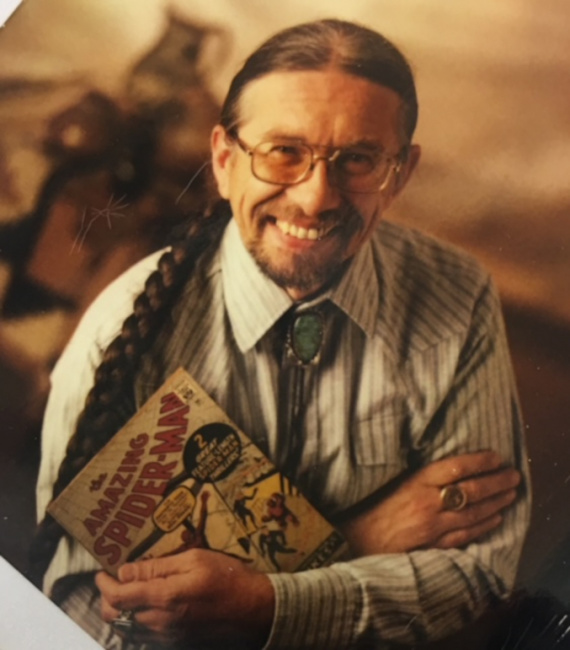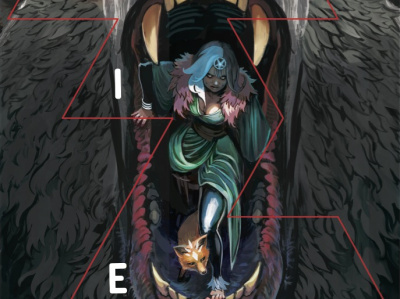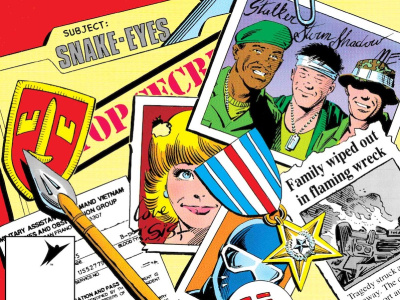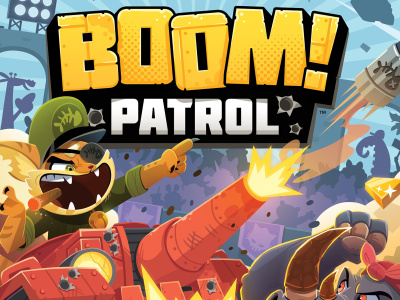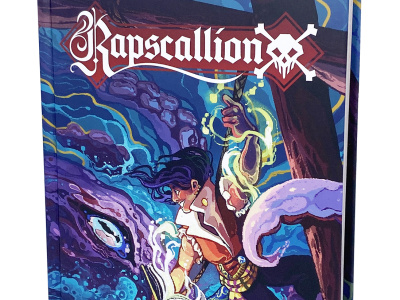Like many comics retailers, Chuck Rozanski got an early start, selling comics at an antiques fair when he was 14. Since then, he has grown his business to include both online sales and brick-and-mortar sales in his 45,000 square foot Mile High Comics store in Denver, Colorado. In Part 2, he talks about his own forays into distribution, mail-order sales, and online sales. In Part 1 of this interview we talk to Rozanski about getting started in the business and rallying with other retailers to pressure Marvel Comics to change its trade terms and open up distribution. In Part 3, we discuss the current comics market, the importance of back issues, and why climate change is bad for comics.
This interview was conducted as part of ICv2’s Comics Direct Market 50th Anniversary celebration; for more, see "Comics Direct Market 50th Anniversary."
To watch a video of this interview, see "ICv2 Video Interview – Chuck Rozanski, Part 2."
Mike Friedrich got hired at Marvel in 1980 (see “ICv2 Interview: Mike Friedrich”). Perhaps he was hired as a result of this new focus on the Direct Market.
He was. I was actually offered that job first. After I had gone and spoken with Jim Galton and Ed Shukin and Jim Shooter, they came away impressed enough with my brashness, if maybe not my intellect, but at least, I had the balls to show up, that they said, "We want to set up a representative. We want someone to handle all of this, and would you be interested in doing it?"
I said, "No, I don't want to leave Colorado." Best decision ever. They actually advertised for the position and Mike applied. Then they contacted me and said, "What do you think of Mike Friedrich?" Mike had been selling me copies of Star*Reach and Quack and Imagine out of the trunk of his car for years. I was like, "Yeah, he's really a good guy, and he knows his stuff." So they hired Mike. That was one of the best things that ever happened to Marvel Comics. To this day, I have enormous respect for Mike.
For sure. Mile High Distribution, that became Alternate Realities at some point, correct?
It only lasted for two months, and then had to be closed up because of Phil. What was also swirling in the background of all of this was the Irjax lawsuit and the settlement with Irjax (see “Phil Seuling: The Man Who Invented the Direct Market”). I'm not privy to the details on that, so I don't even want to go into it, but clearly, there were antitrust considerations that have been brought up in the course of doing that. Phil hit back, in the same vein, by saying, "You can't open up one of my retailers as a distributor, or I'll sue you." I wasn't that valuable to Marvel at that point in time, so they didn't really care. They said, "Sure. We'll dump Chuck." Shukin called me up. He said, "Chuck, I'm really sorry, but we're going to have to shut you down."
I said, "How about if I transfer ownership to my wife? She and I have separate property, based on a prenup. She can run it. It becomes her company, and I have nothing to do with it." He said, "Yeah, that'll probably work." That's what I did. I said, "From now on, I buy from Nanette." I set her up. She got an office in the back of the Mile High store that we had at that time. She hired Todd Burleski to work for her. The two of them just ran that as their own little thing. I had almost nothing to do with it.
The one thing that I could do (Nanette was having our kids at that time; we had four girls over a period of seven years), while she was taking care of the kids, I would go to the IADD meetings or run over to England for her and talk to the account that we had over there and go to the guy that we had in Germany and things like that. But in general, my involvement with Alternate Realities, on a day‑to‑day basis, it was nothing. She would just send me off to do the stuff she couldn't do.
You mentioned IADD, which was the International Association for Direct Distribution. Talk a little bit about the early days of that trade group and what the meetings were like.
The initial meeting almost, as you know, broke into a fistfight because Jim Cavanaugh and, what's his name, from Irjax?
Hal Schuster.
Hal Schuster, got into screaming match in the room that I had set up in the Executive Towers Hotel in San Diego, and were threatening to punch each other out. This room I had set up was their overflow dining room, so there were dozens of people eating breakfast while Hal and Cavanaugh are screaming their lungs out at each other about poaching customers.
The initial stages of IADD were a bit rough. I think that would be the way to put it, but we managed to hammer out enough stuff. There were enough clear heads in the room (not mine, other people's) that an association managed to be cobbled together out of, I think initially, there were 21 distributors in total. Within a month or two, two of them dropped out. There was a guy in Alabama who lasted about an hour and then another one. IADD eventually ended up with, I think, 19 active members, couple up in Canada, Styx and—
Multi‑Books.
Multi‑Books and then also Silver Snail, Ron Van Leeuwen [Andromeda Distribuiton]. Then we had the guys in the U.S. and Comics Hawaii. I thought IADD had tremendous potential, and then DC totally screwed everything up. DC hosed things so bad. I think, to this day, that we just have to remember that Bruce Bristow and his inanity really destroyed the distribution system in the United States, as I had envisioned it.
I will grant you that I was very much of an idealist. Yes, if I could get comics at a better discount, that was something that I certainly was hoping for, but I also saw that if we did the "rising tide floats all ships" model where we just grew the business larger and offset the decline in the newsstand distribution, that we could make something that was really, really beautiful, and it turned out that way, but where [DC Sales and Marketing VP] Bruce Bristow and [Paul] Levitz just totally screwed things up was when they came up with a volume‑driven distribution discount model, which tilted the playing field away from what I had set up, which was a straight 60, free freight for everyone. Suddenly, you could earn points by poaching accounts.
It turned into this hideous catfight where there was this encouragement for everybody to get larger and larger and larger, and instead of being local and regional and servicing people, becoming these larger, cross‑country accounts. Capital, obviously, was one of them, but that was the great incentive behind Diamond growing up and getting larger. As long as DC was giving extra points for growing in size, it really undermined all of the smaller regional guys, and gradually, all of them were subsumed, including Alternate Realities.
I think they just had this philosophy that they wanted a smaller number of direct distributors that were larger, rather than 15 or 20 companies that were regional and spread all over the country. That's why they set up their pricing in that way, I think.
Going to Warner and explaining things, it made it a lot easier if you were talking about two or three or four major accounts. Honestly, I think that the vitality that was generated by having the regionalism, even though, obviously, the larger markets had way more strength, but the regionalism helped a lot in the beginning. That's where the greatest growth was in the Direct Market. Then it became a game of numbers.
I still remember going to a Diamond seminar in Baltimore, where basically anybody with a pulse could be called a retailer. They were claiming they had something on the order of 10,000 or 11,000 people there. It was a joke. I was there. I had studiously avoided these sort of cattle calls because I just found them repugnant. When I went to this one and I saw the unbelievably poor quality and inexperience of the people that they were claiming were accounts, I was aghast because I could just see that the whole thing was going to collapse in on itself.
That must have been early or mid‑'90s, right?
Yeah. I think it was '91. It was just ghastly.
It was when the card guys were getting into comics.
Big Bob was there. Remember that guy from up in Boston? Big Bob's Comics or Big Bob's Cards or something like that. These guys were buying 100 cases of every Valiant just because they knew they were going to get rich. I mean, what morons.
Another part of your business during this whole time, in addition to new comics, you were buying wholesale back issues.
Yes.
I knew you from Capital City as the guy who I could go to if I had leftover stuff, cleaning out a warehouse. The going price was about a nickel a book, as I recall. It stayed that price for decades. It was worth it because the way we could get value out of it didn't achieve a nickel with all the work we would have to put into it. I always used to say that Chuck ran the rendering plant for comics, the comics business, because all these comics from all over the country would go into your warehouses, and they'd get sorted out, and value would be derived from various ways in bulk or in single issues. It helped the business because otherwise, that inventory just would have gone to waste. Talk a little bit about that part of your business.
From you and from Diamond, and even earlier on from Pacific and people like that, I was buying mass amounts of comics every chance that I got, and it still continues to this day. I'm perpetually broke to this day, because every time I get offered a great comic collection, I'm out there. I spend the $20 that I have hidden in my wallet. I spend everything because I just love comics. Right now, I'm surrounded by, I don't know how many millions, because if you can count them, you ain't really got a lot. I got a lot of comics.
When you guys were offering me stuff at a nickel, I would come in and I would say, OK, where can I get my money back? If I saw two cases over here and three cases over here of things that were liquid enough that I could turn a bunch of them fast, then hell yeah, I'll buy the whole thing.
The one advantage that I brought to the table was, first of all, I take everything, almost. You didn't give me all those A Legend of the Dark Knight #1s you had, because you had another semi that I didn't take as I recall up in Madison, [laughs] but I took pretty much everything. I remember I took three semis out of Sparta one time, but I could bring in trucks. There was a huge meatpacking place here in Colorado that would send trucks all over the country with frozen beef, and they were coming back empty. I could send one of my meat wagons just about anywhere at just about any time and I could bring back tons of comics. That was our main business, our mail order business, and it did extremely well until Steve Milo came along (see “Capital City Sales Conference Photo Gallery”).
Steve Milo was a classmate of Scott Rosenberg at the University of Virginia, and Scott was not impressed with the way that we ran our business in Denver. He was one of our Alternate Realities accounts. He would come into our Denver back issue warehouse to pick up his new comics, and he saw how we ran the back issue department, and, man, there were a lot of inefficiencies that we had in those days. We didn't even have a computer in those days, but we were generating hundreds of thousands of dollars a month selling them. He went to his friend, Steve Milo, and said, "Hey, you can ice this guy, Rozanski, in a heartbeat because he's really stupid." I'm paraphrasing
Who used to come into your warehouse? I thought you said it was Steve, but then you said he told Steve?
Scott Rosenberg.
Scott Rosenberg was visiting your warehouse, I see. OK, go ahead.
He of soon to be Malibu fame.
Yes, I know Scott very well.
[laughs] Anyway, I like Scott a lot, but he really didn't think that we were a terribly professional organization, and to give credit where credit's due, he was probably right. Milo didn't know shit from Shinola, to be kind, and he only had his daddy's money, to be kind, and he managed to lose a great deal of that, to be kind.
As I recall, he had to write you guys a really big check at one time, just to go back in memories, but that's because he didn't know what he was doing. All the time that he was running all of his ads in Malibu and doing all of his deals with Image (I talked to his controller after he went out of business) his controller said he never had a profitable deal that he worked on. That is the worst kind of competitor that you can have. Somebody who's too dumb to realize that they're doing idiotic things.
He printed color catalogs when we were doing black‑and‑white catalogs. Our catalogs at least broke even. Some of them didn't make a lot, but they at least broke even. His apparently never did, but he loved doing them. Bud [Plant] sits there and does those incredible catalogs of his and lays everything out and does just awesome stuff. Well, Steve liked doing his catalogs too, but eventually, after multiple million dollars injections of money, he went away. But by then, he had ruined my deal with Marvel, where I was running those full‑page ads and offering back issues for sale, because those ads really didn't make us a lot of money.
What I was doing, Rita Smolinski, who was in charge of the advertising at that time, was selling me the ads on a last‑day basis. That's why some of my ads, later on, looked fairly rushed. That's because Rita would call me at 3:00 in the afternoon and say, "Hey, I need an ad by tomorrow." I'd have to work all night laying out hot type and putting it onto pages with wax and managed to get an ad to her some way somehow because she offered it to me for two grand for the line or three grand for the line.
Milo came along, and he said, "Hey, I'll take every page you give me at the rack rate, 11.2. That put an end to my shit. That's the bad part, is when you have a really [grr] competitor, then you just got to wait until they finally die, which he did. But it took a long time and it cost me a decade of lost growth.
What was the name of Milo's business, again?
He had AnotherUniverse.com was what it became later on. I'm trying to remember what it was called when he ran it, just the stores, but I can't remember.
Another Universe sounds right. I was thinking this was around the same time as the transition to e‑commerce, too, wasn't it?
Yeah, it was. There were issues with that, but he was blessedly starting to wane by that point. He hurt us between about '84 through '89 or '90. We started going into e‑commerce in '86, got the website up in '87, and then really started rocking and rolling. Then he ran afoul of [laughs] the NextPlanetOver situation that developed.
As you may recall, there was a push by NextPlanetOver to get a subscription service. I had purchased the subscription service that was the original Lone Star subscription service, combined it with a little one that I had, and then grown it a lot by running a lot of Marvel ads where I offered free hardbacks if you’d just sign up.
Then Milo had his, and he took my Marvel ads away, so he was able to grow his even larger. Then, finally, he got in so deep to Diamond that one day, they put up a sign on his pallet full of comics that said “ON HOLD.” And the minute that news got back to the folks in Orange County, that was the end of things.
The folks in Orange County?
Image, because he was doing all the Image variants, and they suddenly wondered, "If he wasn't paying Diamond, were they going to get paid?" That was a very reasonable question to ask.
NextPlanet Over was '99, 2000. That's when, I remember, I think Steve [Geppi] bought the bones of Milo's business at some point because I remember him saying that he was in Milo's office and he was watching online orders come in and it was such a revelation that, wow, people could sell online. It sounded like you'd already been doing e‑commerce for 10, 15 years by that time. What was your first e‑commerce business‑like, and how did that evolve over that decade?
The earliest stuff we did was on the old Sportsnet. I can remember selling 30,000 copies of the Tour Book, the Extreme Comics' Tour Book, the one that had that black cover that Rob Liefeld created. We sold over 30,000 copies of that, just offering them on the Sportsnet and having people send us emails.
Sportsnet was a BBS, right?
Yeah, that was way early. I had nothing to do with it, but my staff was cognizant enough of what was going on that they were involved with that. Then, in '96, our catalogs started failing. The worst one was the one that I did for spring of '97. It was 120 pages, and it cost me 50 grand to print and mail because our mailing list had gotten really large, but it only grossed 50 grand. All the money went to the printer and the USPS, and there was nothing left over.
I despaired that we were going to have to go out of business. It was at that point that I said, "We've got to do a website." I ran into a friend of mine who was a publisher from New York at the Frankfurt Book Fair, of all places. That was in the fall of '97, I believe. He said, "You've got to do a website." I said, "Well, how do I do one?" He said, "Go look at this new company, Amazon, and copy everything they're doing." I said, "That's it?" He said, "Yeah." He said, "Because they're actually showing how it works." I said, "OK."
I came home. I had a friend who was a programmer, and I went to him and I said, "Hey, does this work?" He said, "Yeah. I see nothing wrong with this plan as it's laid out." I hired somebody, and they took all the information that we had within our mainframe about our data and just simply converted it. I actually had a website about four hours after I asked for it.
So you had a database. You had a great starting point then.
Yeah, except it was horrible. It was absolutely horrible. My employees used to cheat because we had had some titles that came out, and I'm just going to point to the original Transformers as a case in point, where they said that they were going to be a six‑issue miniseries, and then they just kept right on with the numbering because they sold so well.
So what my employees would do was when any number one came in, they would go ahead and create 20 issue numbers in the database, even though they had no idea whether it would continue or not. Since no one besides us was looking at it, what was the harm? Until we put it all up online and we started getting thousands of people contacting us and saying, "These issues don't exist." "Well, yeah, we know that." Cleaning those up took us ten years. We kept finding them, stupid black‑and‑white independents where we would have 1 through 20 created, and it lasted one issue.
Click here for Part 3.
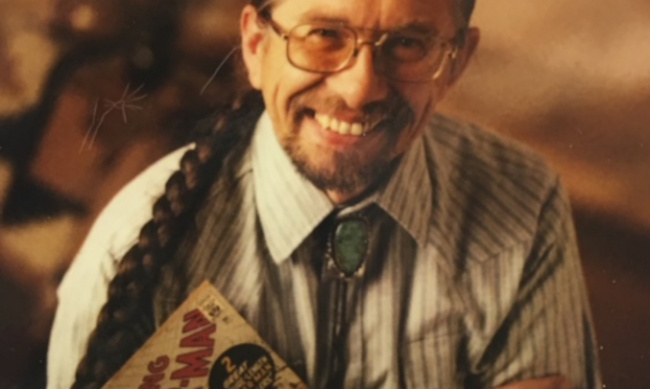
Distribution, Mail Order, and Discovering the Internet
Posted by Milton Griepp on December 31, 2023 @ 2:14 pm CT
MORE COMICS
New 'Die' Story Out in November, Alongside 'Die Quickstart RPG Guide'
August 11, 2025
The Die: Loaded #1 will be released in November 2025, the same month as The Die RPG Quickstart Game Guide.
'Hama Files Editions' Will Include a Letter from the Creator
August 11, 2025
Each issue of the Hama Files Editions will include a letter from Hama with background information about the comic.
MORE NEWS
New Tank Battle Board Game by Smirk & Dagger
August 11, 2025
Smirk & Dagger will release Boom Patrol, a new tank battle board game, into retail.
New Weird Swashbuckling RPG
August 11, 2025
Magpie Games will release Rapscallion, a new weird swashbuckling RPG, into retail.



